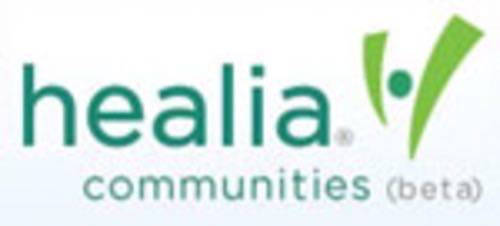With 1.3 billion people on the web today it’s a safe bet that at least a few of them have shared experiences and the promise of the web as a global support group is something that is finally being realized. There have been specialized web sites for specific ailments for as long as there has been a world wide web, covering everything from lung cancer to obesity to social anxiety to alcoholism. But over the past several years, a new breed of general social networks geared toward physical and mental health support has begun to emerge. These sites link people with shared medical experiences and allow them to support one another in difficult times. Below are ten web sites that fall into this new category of “support group 2.0.”


PatientsLikeMe is a social network for people to share experiences based around mental and physical illness. People can use the site to connect with others experiencing the same issues, discuss treatments, and track progress. The site is relatively new and so far has communities for ALS/Motor Neuron Disease, Anxiety, Bipolar, Depression, HIV/AIDS, Multiple Sclerosis, OCD (Obsessive-Compulsive Disorder), Parkinson’s Disease, and PTSD (Post-Traumatic Stress Disorder). People can connect with other patients based around specific symptoms they are experiencing or treatments they are trying, and they can read the latest research on the site. PatientsLikeMe plans to expand its communities into other health areas in the future.

Trusera feels a little like MySpace centered around health issues. People who join Trusera are given a profile on which they can share stories, keep a journal, and create discussions about the things they are dealing with. The site aims to connect people with similar medical backgrounds so they can discuss and share common experiences.

DailyStrength is a huge network of online support groups. The site lets users discuss medical conditions with people experiencing the same thing but with the anonymity of the Internet if they desire to stay hidden. Users also get MySpace-like social networking profiles where they can keep a journal, make connections, upload photos or videos and give out “hugs” to anyone who looks like they could use one. One of the most compelling features of Daily Strength is the treatment directory, where members can review treatments and let others know if and how well a treatment worked for them.

Hope Cube is another fairly new social network based around the idea of people providing support for others going through the same things they’re dealing with. In addition to basic social networking features, the site has a Yahoo! Answers-like health discussion community, and uniquely has a list of trained professionals available as friends on the site. There are huge potential liability risks for doctors giving out advice over the Internet, so it is unclear just how much advice the Hope Cube doctors would be willing or able to give (right now it doesn’t look like many of them have participated much on the site). According to the site, Hope Cube has plans to move into ZocDoc territory as well and do online appointment scheduling.

iMedix is a MySpace-style social networking site that links people based on common medical conditions. Users enter conditions they are interested in and the site uses tags to link them together. Beyond social networking, iMedix also adds a health information search engine to the mix. ReadWriteWeb network blog AltSearchEngines had a full review when the site launched last December.

Healia is a slickly designed health community site based around questions and answers. Users form groups around specific health issues and ask and answer questions in a Yahoo! Answers-style environment and the site has a list of trained medical professionals who participate as well. Healia tracks its top contributors using “Healia Points.” Right now the points just get you on a list of the week’s most helpful members, but in the future, says Healia, they may be redeemable for something more.

ICYou (a clever play on words where the IC, in this case, stands for “Intensive Content”) is a health video sharing site. Patients and doctors upload videos sharing the latest health information, their own personal experiences, or advice for others. ICYou also creates some of its own content on the site, mainly consisting of interviews with patients and doctors.

Take the features of every site we’ve mentioned in this roundup so far, and you have TauMed. Along with social networking, TauMed has a question and answer site, topical health guides, communities based around specific ailments, health news, health information search, video sharing, patient stories, a drug database, and even a directory of doctors. Phew! With all that, the site is still pretty easy to get around and certainly has some helpful information to be found.

MDJunction is a network of online support groups and discussion boards that feels a lot like DailyStrength — right down to the concept of “hugs.” In addition to the discussion board based support groups, MDJunction has a MySpace-style social network with all the usual trimmings.

While Ning isn’t specifically a health related support site, it is one of the best places to find social networks devoted to specific physical or mental health issues. Ning has over 220,000 social networks and is growing at a rate of 1,000 per day. Search the site for whatever type of support group you’re looking for and you’re likely to find a niche network dedicated to just that. For example, here’s a search for “diabetes.”
Bonus site: If you’re craving a more face-to-face support setting, try Meetup to find a real world support group in your town.
Are there any general support group 2.0 sites we’ve missed? Let us know in the comments below.





















